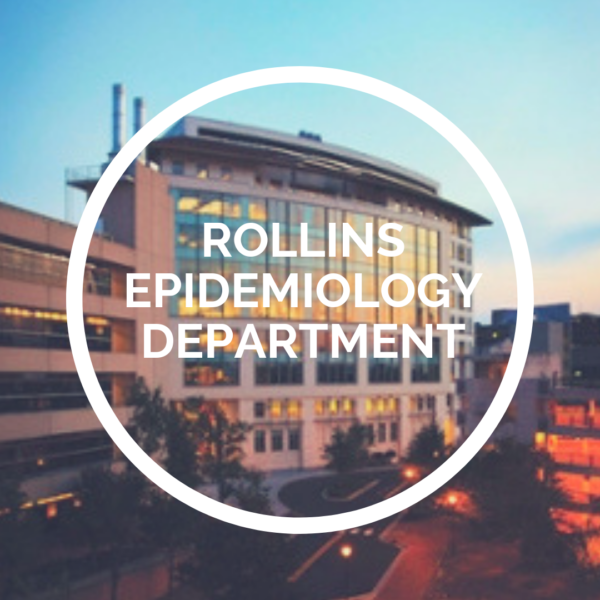*Applications may be reviewed on a rolling-basis and this posting could close before the deadline. Click here for information about the selection process.
EPA Office/Lab and Location: A research opportunity is available at the Environmental Protection Agency (EPA), Office of Research and Development (ORD), Center for Public Health Environmental Assessment (CPHEA), Health & Environmental Effects Assessment Division (HEEAD) located in Research Triangle Park, North Carolina. HEEAD is responsible for scientific assessment activities related to the health effects of air pollutants within the Integrated Science Assessments (ISA). These assessments provide the scientific foundation for EPA policy and regulatory decisions as it relates to the National Ambient Air Quality Standards (NAAQS; https://www.epa.gov/criteria-air-pollutants/process-reviewing-national-ambient-air-quality-standards).
Research Project: This research training opportunity is suited for an epidemiologist who is interested in policy and science translation and/or is seeking an opportunity to contribute to high impact policy relevant research and science assessments in support of EPA’s mission to protect human health and the environment.
Under the guidance of a mentor, the research participant may be engaged in one or more of the following training opportunities:
- Applying systematic review methods to epidemiologic data, including development and application of literature search and screening strategies, study evaluation, data extraction, and synthesis of health effects evidence within (e.g., epidemiology) and across (e.g., epidemiology, experimental toxicology, mechanistic information) lines of evidence for biological plausibility and causality determinations.
- Developing and applying the skills needed to prepare the ISAs. These may include participation as a section author or coauthor, i.e., reviewing and analyzing epidemiologic data to conduct qualitative and quantitative assessments of health effects associated with exposure to various air pollutants, including nitrogen dioxide (NO2).
- Developing analyses to support logical, credible health assessment documents that reflect current scientific principles and risk assessment methodologies.
- Evaluating study quality for epidemiologic studies and identification of critical studies and effects for use in human health assessment.
- Summarizing and extracting epidemiologic study information, and evaluation of concentration- or exposure-response relationships from epidemiologic data.
- Synthesizing and communicating various kinds of scientific information in health assessments.
- Identifying and researching cross-cutting scientific issues that arise in EPA risk assessment, such as application of methodologies and procedures for calculations.
- Devising scientific approaches for CPHEA’s ISA process and interacting with EPA scientists to improve risk assessment methodologies.
- Conduct independent epidemiological research projects, with guidance from an EPA mentor, and author peer-reviewed publications based on this work.
Learning Objectives: The research participant will have the opportunity to learn approaches for the evaluation, analysis, and integration of epidemiologic evidence on the health effects of environmental pollutant exposures that inform EPA’s scientific assessments. The research participant will have the opportunity to be involved in a variety of projects that can include qualitative or quantitative analyses of epidemiologic study findings and data. The participant will gain understanding of how scientific evidence is integrated to create policy-relevant assessments and how those assessments ultimately inform EPA’s decision-making processes.
The research participant will have the opportunity to interact with scientific staff in HEEAD and potentially scientists from other EPA Centers or Offices, in the evaluation of epidemiologic evidence. The research participant will have opportunities to conduct quantitative or qualitative analyses that will contribute to EPA scientific assessments and potentially result in peer-reviewed publications. Through this process the research participant would learn about systematic review in the context of science assessments, risk assessment (e.g., hazard identification, mode of action analysis, dose-response analysis), and new computational tools being utilized in evidence analysis.
Mentor(s): The mentor for this opportunity is Evan Coffman (coffman [dot] evan [at] epa [dot] gov). If you have questions about the nature of the research please contact the mentor.
Anticipated Appointment Start Date: September 1, 2023. All start dates are flexible and vary depending on numerous factors. Click here for detailed information about start dates.
Appointment Length: The appointment will initially be for one year and may be renewed up to three or four additional years upon EPA recommendation and subject to availability of funding.
Level of Participation: The appointment is full-time.
Participant Stipend: The participant will receive a monthly stipend commensurate with educational level and experience. Click here for detailed information about full-time stipends.
EPA Security Clearance: Completion of a successful background investigation by the Office of Personnel Management (OPM) is required for an applicant to be on-boarded at EPA.
ORISE Information: This program, administered by ORAU through its contract with the U.S. Department of Energy (DOE) to manage the Oak Ridge Institute for Science and Education (ORISE), was established through an interagency agreement between DOE and EPA. Participants do not become employees of EPA, DOE or the program administrator, and there are no employment-related benefits. Proof of health insurance is required for participation in this program. Health insurance can be obtained through ORISE.
ORISE offers all ORISE EPA graduate students and Postdocs a free 5 year membership to the National Postdoctoral Association (NPA).
The successful applicant(s) will be required to comply with Environmental, Safety and Health (ES&H) requirements of the hosting facility, including but not limited to, COVID-19 requirements (e.g. facial covering, physical distancing, testing, vaccination).
Questions: Please see the FAQ section of our website. After reading, if you have additional questions about the application process please email ORISE [dot] EPA [dot] ORD [at] orau [dot] org and include the reference code for this opportunity.









Recent Comments